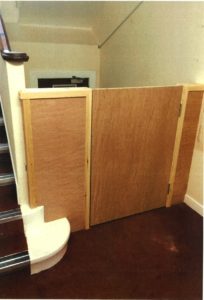- 28th November 2019
- By: David Henderson
- Health and Safety
A Lincolnshire metal fabrication company has been fined for not complying with three improvement notices issued by the Health and Safety Executive (HSE).
Boston Magistrates’ Court heard that, in December 2018, W S Barrett & Son Limited was issued with three improvement notices relating to testing wood dust and powder coating local exhaust ventilation (LEV), and providing LEV for welding fume extraction on its site in Boston, Lincolnshire. Improvement notices are legal documents requiring improvements to be made by a specified date. WS Barrett & Son Limited failed to comply with all three notices by the completion date.
An investigation by HSE found that the company was first advised of the problem in February 2018 but did not act following receipt of a Notification of Contravention letter. A further visit by HSE in December 2018 found the company had still not made the necessary improvements. A subsequent follow-up visit in April 2019 showed they still had not done the work to meet the improvement notices.
W S Barrett & Son Limited of Marsh Lane, Boston pleaded guilty to breaching Section 33(1) (g) of the Health and Safety At work etc Act 1974. The company was fined £12,000.00 and ordered to pay costs of £1,740.40.
Speaking after the hearing, HSE inspector Martin Giles said, “The failure to comply with an improvement notice is a serious offence. If you receive a notice, you should ensure you take appropriate action to correct the health and safety problems and breaches that are identified in the notice.”
HSADD Says, The number of businesses that get improvement notices and then look at the due date and think ‘Got loads of time for this’ or think that it’s ‘Just a suggestion’! whether from LA, Fire Officer or especially HSE – NO it is not – you need to get onto this straight away and deal with it!
The fine and court costs, plus Solicitors likely in this case exceeded the cost of actually doing the job right the first time!
Credit to HSE – https://press.hse.gov.uk/2019/11/25/metal-fabrication-company-fined-for-failing-to-comply-with-improvement-notices/










Recent Comments